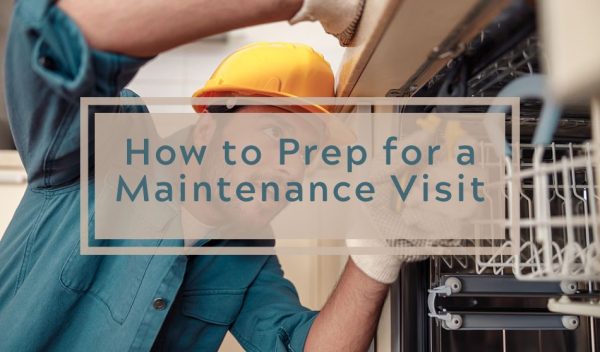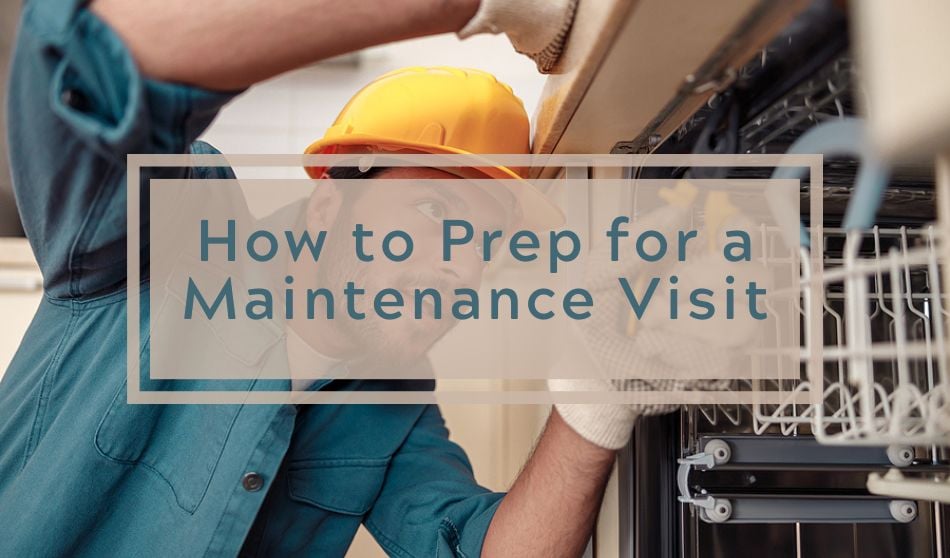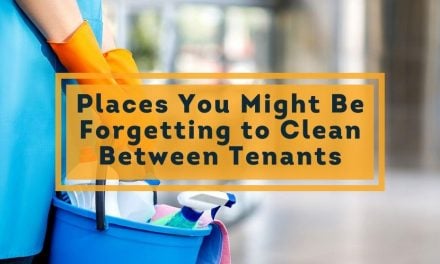
One of the advantages of renting vs buying your home is that you are not required to handle any of the complex maintenance costs associated with owning a home or apartment. Whether you are dealing with routine seasonal maintenance tasks that need to be performed, or you are facing a maintenance emergency such as a burst pipe, having a professional handle the details can be a big plus.
While handing off the job to a professional can be a huge benefit, there are a few things that you need to do to prepare for a maintenance visit as a renter. This can ensure that the maintenance goes smoothly, that you’re not in violation of any lease terms, and can simply make it easy for maintenance personnel to tackle the task (which could lead to a quick response time in the future since they can count on checking off your request efficiently).
When Should I Put in a Maintenance Request?
Your landlord or property manager needs to know any time there is an issue at your residence that needs to be addressed. Your lease agreement should outline how to correctly report any issues or request maintenance. This request could be done via phone, email, text, or via an online tenant portal or tenant portal app on your mobile device, depending on your landlord or manager’s instructions.
Knowing when and how to request maintenance is key, since not alerting your landlord could lead to long-term damage to the property. In a worst-case scenario, if you neglect to alert your landlord or manager to an issue that could be causing damage, you could be responsible for the cost of the repairs due to negligence. These costs could be deducted from your security deposit.
Emergency Maintenance Requests:
Emergencies are usually easy to identify. An issue such as a kitchen fire that caused damage, a flood in the basement, or a broken HVAC system could all require an immediate response since it affects the habitability of the dwelling. Not dealing with the issue promptly will result in severe damage. For these kinds of requests, you may need to forgo the usual maintenance request procedure. Many property managers will have an emergency line to call so that your urgent repairs can be done immediately rather than waiting for an emailed response or response via an online tenant portal.
General Maintenance Requests:
Everyday maintenance requests can often be more important to report than you would expect. With renters’ busy schedules, it’s not surprising that requesting a work order or repair may be pushed to the back burner if the issue seems non-emergent. Unfortunately, leaving some issues to get worse on their own could cause damage that you would otherwise not be responsible for. This is especially true for water issues since water damage can be very costly to repair. If you notice a leaky pipe or dripping faucet, be sure to report it via your landlord’s preferred method.
Seasonal and Non-Urgent Maintenance Requests:
Your landlord likely performs seasonal maintenance to keep the rental property in its best condition. Renters generally don’t request these tasks, but you will need to expect or prep for their completion since you will likely have a maintenance crew member or your landlord completing these tasks on the property.
Seasonal maintenance can include tasks such as:
- Cleaning the gutters
- Weatherproofing
- Yard maintenance
- Roof Inspections
- And more
Low-priority maintenance requests may be tackled during this time too. Tasks like changing the oven’s light bulb or cosmetic repairs may be lower priority and your landlord may find it more efficient to complete these repairs during the seasonal visit. This can be beneficial for you as well since you do not have to prep for multiple visits for non-urgent tasks.
What Do I Need to do to Prep for a Maintenance Visit?
When scheduling a maintenance visit, the urgency and nature of the issue will affect your need and ability to prepare. When in doubt, always ask the repair person or your landlord what the expectations are for the visit.
It can help to ask these key questions:
- Do I need to be present at the property for the maintenance to take place?
- What areas will the landlord or maintenance personnel need access to?
Emergency Maintenance Prep:
When it comes to emergencies, there may be little you can do to prepare for a maintenance visit. Ensure that the repair person has easy access to the area that needs to be inspected or repaired. For example: if your kitchen’s waterline broke and is leaking, attempt to remove any kitchen storage under the sink to make it easy for your landlord to assess the issue quickly.
Your landlord or repair person may need to maneuver around with heavy tools, or cumbersome equipment, so make sure there is no risk of a tripping hazard. (This task will likely be especially important if you have small children since toys and small belongings are more likely to end up on the floor and could be unseen by a quick-moving worker.)
If you have pets, be sure to keep them out of the area. Depending on the timing of the maintenance visit, simply keeping your pet in another room, securing your pet in a pet crate, or asking a friend or family member to petsit can all be options for pets.
General Maintenance Prep:
These issues will likely be addressed by your landlord based on their schedule and yours. Often, you will have a day to a week’s notice for these kinds of issues, so you will have additional time to prepare. Just like with an emergency maintenance prep, remove any belongings in the area where the issue resides. On the day of the maintenance, be sure to secure your pets.
Since you have additional notice, take the time to remove any excess clutter in the surrounding areas of your home. While you may not need to do a full deep cleaning session, it’s a good time to make a good impression by showing that you care about the property.
Your landlord will expect your home to be lived-in, but trash, excessive clutter, and dirty spaces can leave the impression that you are not caring for the property. Trash and clutter can also attract pests or encourage the growth of mold and mildew, so keeping your home or apartment clean is important to your health and safety as well as the condition of the rental property.
Learn more: How to Prevent Mold in Your Rental Home
Seasonal Maintenance Prep:
Seasonal maintenance must be done at a rental property to ensure its longevity and habitability. Annual maintenance and seasonal maintenance play an important role in ensuring that the rental is habitable and comfortable for you. Generally, you’ll have reasonable notice for a seasonal maintenance visit and many landlords take this time to also handle a general inspection of the property. Some landlords will pre-schedule the annual maintenance so you know when it will be far in advance, while others will give a day to a week’s notice depending on your state’s laws and regulations.
While you should be following the lease terms and conditions year-round, now is a good time to assess the rental and make sure you’re meeting the lease expectations. Since your lease agreement is often a document that renters review at the beginning of the rental period and tend to forget, it might be a good idea to take a look and ensure that you refresh on any requirements you may otherwise have forgotten. Seasonal and annual cleaning is important for any home, so this is also a good time to declutter your rental and do a deep clean. This will keep your space inviting and comfortable but will also show your landlord that you are taking good care of the property.
Learn more: 10 Must-Have Products To Deep Clean Your Rental






